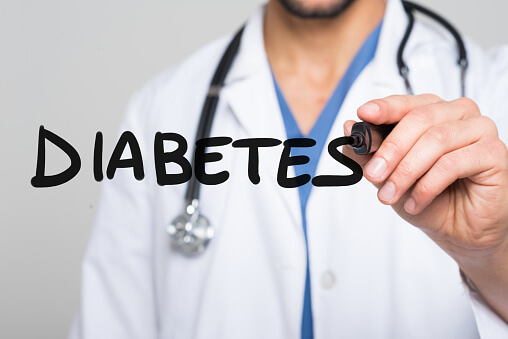Metformin was the first drug prescribed to help type 2 diabetics lower their blood sugar. But increasingly popular newer drugs (especially SGLT2 inhibitors) are stealing metformin’s market share. Researchers are beginning to combine SGLT2 inhibitors with metformin for optimal results — and a new drug on the block shows promise. Enter the newest FDA-approved SGLT2 inhibitor, ertugliflozin (brand name: Steglatro™). If clinical studies are any indication, this drug may soon disrupt the diabetes medication industry.
What is Ertugliflozin?
Ertugliflozin is an oral diabetes drug positioned to compete with AstraZeneca’s Farxiga and Johnson & Johnson’s Invokana. All SGLT2 inhibitors cause patients to expel excess glucose through urine, thus regulating blood sugar. In fact, some SGLT2 inhibitors can also help decrease blood pressure and provide weight loss benefits.
Some existing SGLT2 inhibitors offer type 2 diabetics unexpected benefits, such as short-term weight loss. However, patients also report some harmful side effects. Many Invokana patients risk potentially deadly side effects, including:
- Ketoacidosis
- Stroke
- Doubled risk for losing a toe, foot or leg cut off below the knee
- Kidney damage, including acute kidney injuries (AKIs) and renal failure
For these reasons, many in the diabetes community are actively looking for a safer alternative. And ertugliflozin may fit the bill for those looking for an SGLT2 inhibitor that’s cheaper than Farxiga or Invokana. And Merck is still conducting clinical trials hoping to prove the newest drug could prevent cardiovascular event-related deaths and hospitalizations. In plain English, Merck and its partner Pfizer to prove the newest SGLT2 inhibitor has heart-health benefits for type 2 diabetics. If the companies can prove you’re less likely to suffer heart attacks or stroke with Steglatro, it could attract significant market share from competitors like Glyxambi.
Ertugliflozin Studies Show Promising Results
Ertugliflozin’s manufacturer, Merck, conducted the VERTIS Factorial study. The randomized, double-blind clinical trial looked at 1,233 patients with type 2 diabetes. Five different treatment arms were given to study subjects during a 26-week period. Subjects received either:
- Ertugliflozin combined with sitagliptin (brand name: Januvia)
- Ertugliflozin alone
- Sitagliptin (Januvia) alone
The study found patients taking ertugliflozin 15mg combined with sitagliptin 100mg saw the biggest benefits, including:
- The greatest reductions in fasting blood glucose levels
- Weight loss, with patients losing 8.1 lbs over the 26-week period, on average, and
- Lower blood pressure
But what makes this newest SGLT2 inhibitor a potential powerhouse is the ability to sell it in drug combinations. In fact, combining different blood sugar medications to amplify effectiveness is a growing treatment trend in the U.S. Merck has plans to sell ertugliflozin in combination with metformin or Merck’s diabetes DPP-4 drug, Januvia. Today, Januvia is the top-selling drug in its class for lowering blood sugar. In comparison to similar diabetes drugs, combining ertugliflozin with other proven medications makes it much more versatile.
With ertugliflozin’s recent FDA approval, Merck expects to bring more diabetes medicines to market nationwide shortly.
Ertugliflozin Side Effect Risks
While SGLT2 inhibitors work well for many type 2 diabetics, patients also need to know about dangerous side effects. Invokana, in particular, can cause kidney damage, ketoacidosis and strokes as well as significantly increased amputation risks. Despite several clinical studies linking SGLT2 inhibitors to dangerous complications, patients may feel the benefits outweigh any potential risks. According to clinical trial results, the most common ertugliflozin side effects are:
- Yeast infections (affects about 9%-12% of patients)
- Urinary tract infections (affects 4%)
- Headaches (affects 2.9%-3.5%)
- Increased urination (affects 2.4%-2.7%)
- Common colds (affects 2%-2.5%)
- Back pain (affects 1.7%-2.5%)
- Weight loss (affects 1.2%-2.4%)
- Increased thirst (affects 1.4%-2.7%)
Since this drug (like other SGLT2 inhibitors) increases creatinine levels, diabetics diagnosed with poor kidney function should avoid it. The VERTIS FActorial trial also found these drugs can raise your “bad” cholesterol, or LDL, up to 5.4% within six months.
How Injured Invokana Patients Can Qualify for Compensation
If you or someone you love suffered life-threatening complications after taking Invokana or Invokamet, you may have an eligible case. Affected patients can check their eligibility for Invokana lawsuits online without first filing a claim. To see if you may qualify for a cash settlement, complete your free Invokana case evaluation today. Once you’ve submitted your information, an attorney will call to discuss your compensation options. You’ll also get the opportunity to ask confidential questions in person. Only you can decide whether or not to move forward or have your matched lawyer handle your claim.
Related: New Diabetes Medications, Part 1: An In-Depth Comparison and Review
Mandy Voisin
Mandy Voisin is a freelance writer, blogger, and author of Girls of the Ocean and Star of Deliverance. As an accomplished content marketing consultant, mom of four and doctor's wife, Mandy has written hundreds of articles about dangerous drugs and medical devices, medical issues that impact disabled Americans, veterans' healthcare and workers' compensation issues since 2016.

